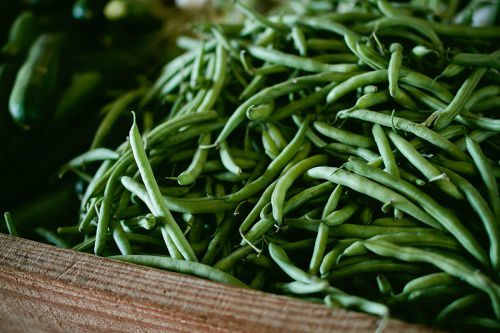Anyone who's familiar with “Portlandia” probably remembers Colin the chicken — a heritage-breed, woodland-raised fowl who was fed a diet of sheep's milk, soy and (local) hazelnuts and lived a happy life on a (local) 4-acre farm before succumbing to its fate on the plates of two insufferable hipsters. While the comedy show, based in and around Portland, Ore., takes cultural mores to hilarious extremes, the chicken sketch points to a truth in current culture: more and more people are eating organic, local, non-GMO foods and prefer the authentic over the artificially enhanced. And that's where the Archdiocese of San Francisco saw an opportunity to help low-income parishioners escape poverty. Father Larry Goode is the pastor of St. Francis of Assisi parish in East Palo Alto, a small and historically low-income city in the San Francisco Bay area. Recently, Fr. Goode watched as big tech companies — Facebook, Google, and Microsoft — bought up most of the land surrounding his neighborhood, driving rent prices up and St. Francis' low-income families out. “We're a community of low-income people, and we're trying to find a way to keep the community intact,” Fr. Goode said. He started brainstorming with St. Patrick's seminary professor Father George Schultze and Ignatius Press founder Jesuit Father Joseph Fessio to come up with a way to create sustainable income for the poor in the area. That's how the idea of NanoFarms USA, a worker-owned farming cooperative, was born. After receiving permission from Archbishop Salvatore J. Cordileone and St. Patrick's seminary rector Father Gladstone Stevens, Fr. Goode and St. Francis parishioners started using seminary grounds to plant produce, which they then started selling at local parishes and markets. To supplement the income from the produce, the co-op is also creating and selling NanoFarms, or miniature, already-started gardens that range in cost from $500 - $2,000, depending on the model. Those who purchase NanoFarms also have the option of hiring a worker to periodically maintain the garden. Brendon Ford, the West Coast Regional Manager for NanoFarms USA, said the co-ops are giving workers a more just wage than what they might earn in other lines of work in the area. “A lot of people, if they didn’t have this job, they would work for a gardener, or at a farm, or as a landscaper and they would be making very low wages,” he explained. “Here (at NanoFarms) they actually own the company, they run the company, they vote for their boss, they can decide the direction of the company,” he said. “They have a lot more control. They have a lot more responsibility, but they have a lot more ownership.” Ford, who didn't know much about farming when he got involved with the co-op, and had to take an eight-week course on bio-intensive farming practices in order to learn more, while another worker is finishing training in organic farming practices. “It's awesome because last year we didn't know anything about this stuff, and now we know so much,” Ford said. “We've literally seen the fruits of our labor.” The idea of fresh, organic produce is definitely trending in the Bay area right now, Ford said, which helps the appeal of their business. “Our culture, especially the millennial generation, is kind of rebelling against the unnatural stuff of the previous generation,” he said. “They really want to experience the authenticity of life, I think this applies with food.” But beyond providing authentic produce, NanoFarms is also helping tech workers and others in the area to recognize the value of every person in the community, Fr. Goode explained. “Low-income people provide innumerable services for the other side of town, which they’re not being acknowledged or recognized for, so as the cost of living goes up and these people have to leave, nobody’s filling in to do those jobs,” Fr. Goode said. “So this is partly to make ourselves more visible, so people can see that there’s a need here for people to wash their cars, to do their lawns, to cook their food. Then they can see that it’s not going to make it a better community to have just tech workers.” Fr. Goode said he is also reading Pope Francis' encyclical, “Evangelii Gaudium,” at the moment and believes that NanoFarms is responding to the Holy Father’s constant call to the Church to care for the poor. “It's not optional, it’s a required thing,” he said. “The Gospel requires that we become a Church of the poor.” Ford also said that NanoFarms USA is a model for how Church social teaching works. “We have to take care of the poorest among us,” he said. “And (one way) to do that is to tackle the issue: Why do people not have money? Why are they not having the jobs that they need? And I think what NanoFarms is doing, it’s finding a solution to people without jobs.” Ford said NanoFarms also appeals to people who like to support good causes in their own communities. “They see that this is actually helping people, this isn’t helping some big corporation,” he said. “But these are local people that are right here, the farmers are from their parishes, their communities. They like that idea of supporting each other.” There are already plans in the works for another NanoFarms co-op to start in the Archdiocese of Chicago, and Ford said he’d like to see the project spread further. “We're hoping other dioceses will catch on to this idea and start their own co-ops.” To learn more about the business, visit: http://nanofarms.com/

